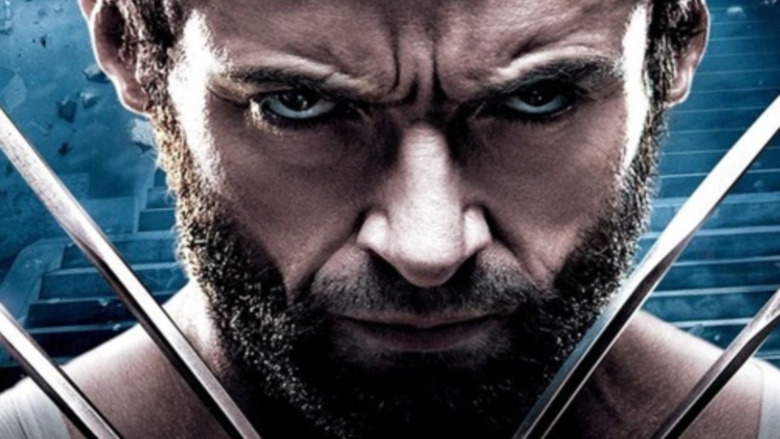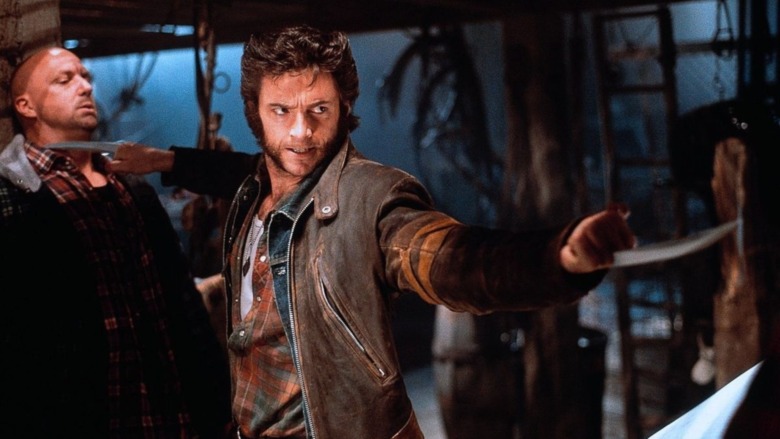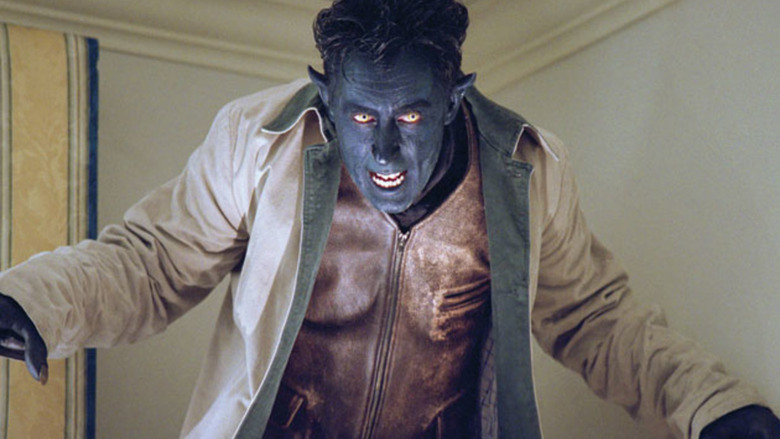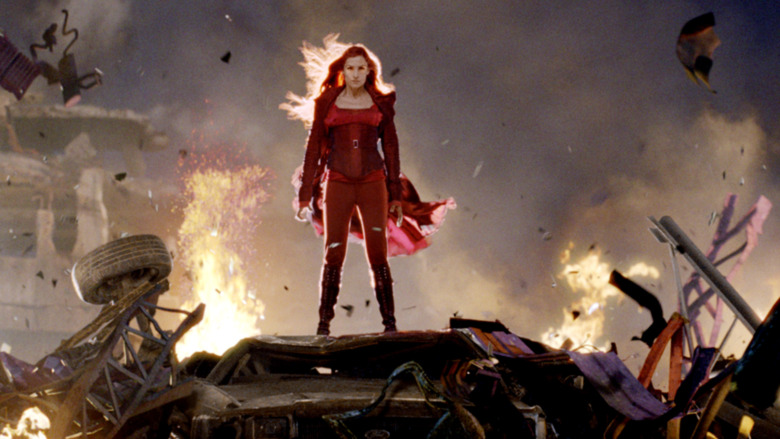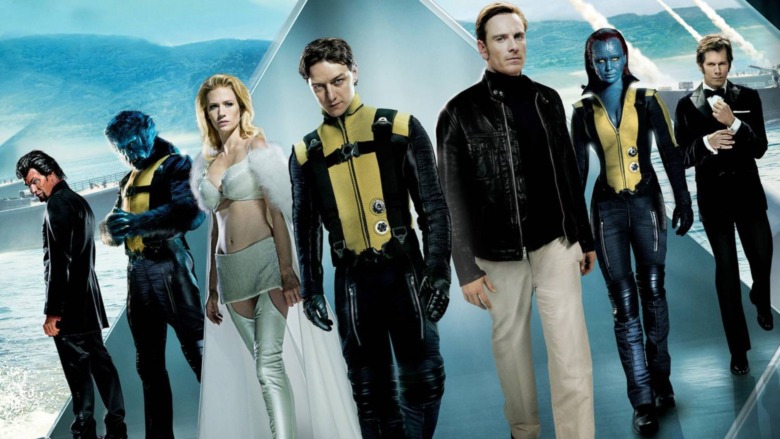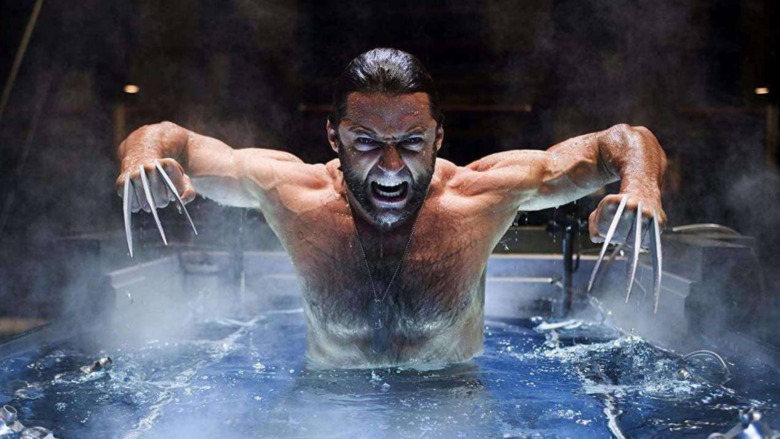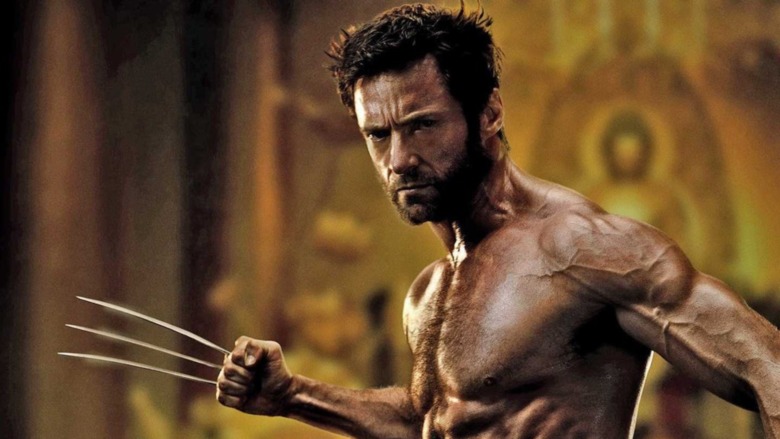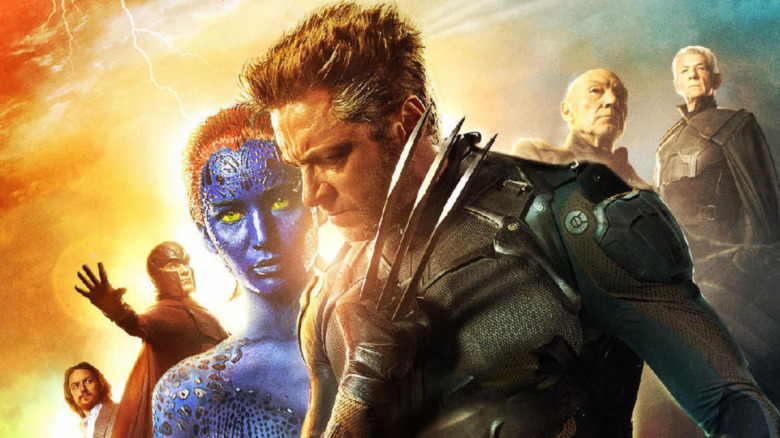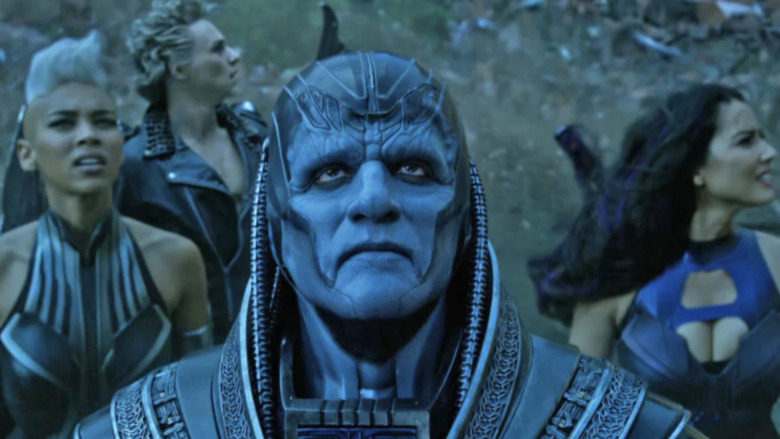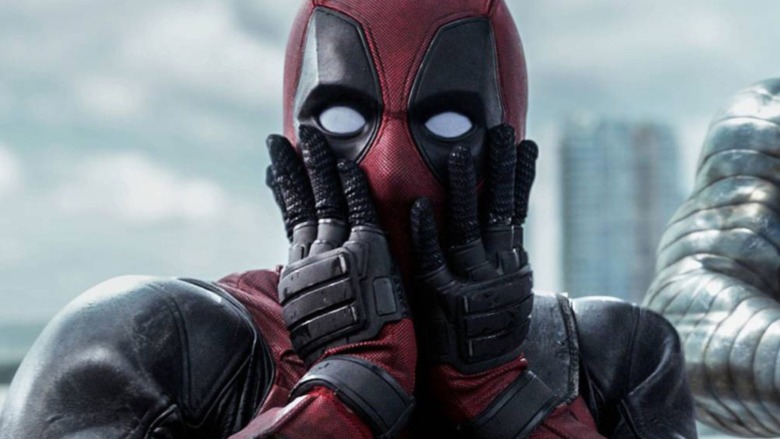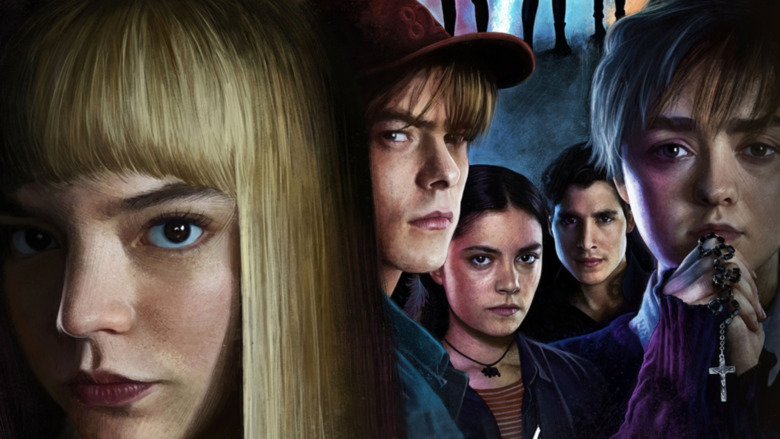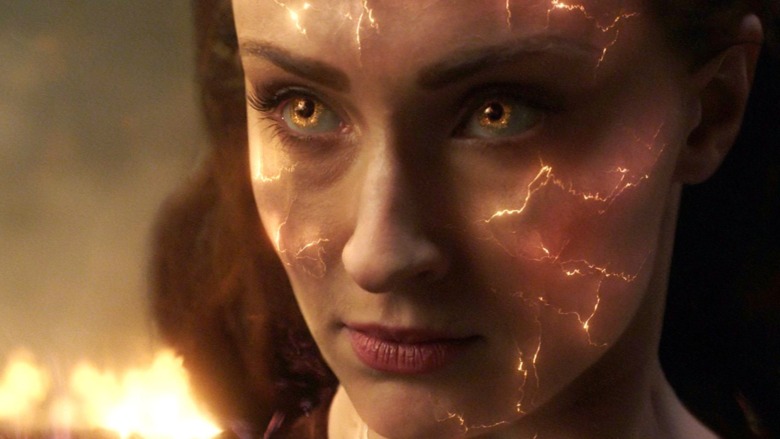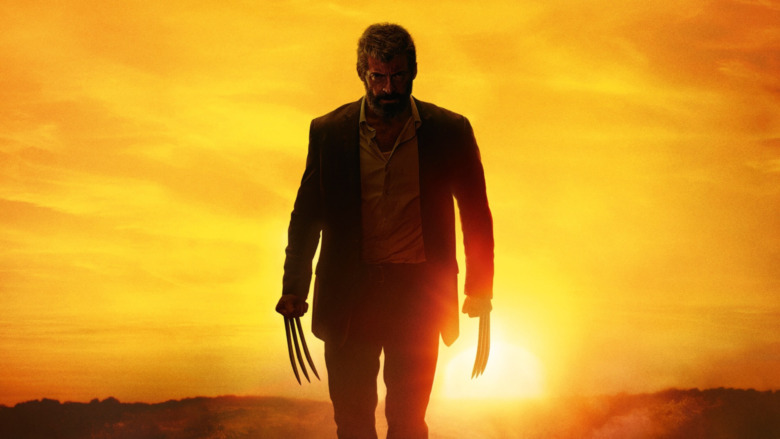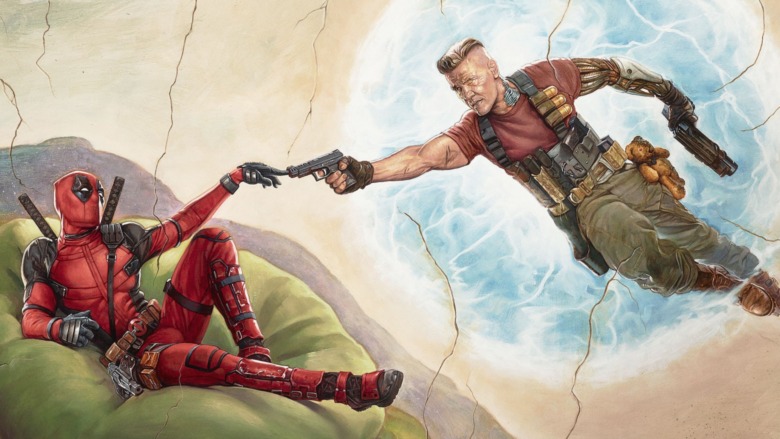This Is The Right Order To Watch Every X-Men Movie
As of this moment, the future of the X-Men in cinema remains a matter of ambiguity.
Aside from Evan Peters' brief and bizarre return to the role of Quicksilver in WandaVision, the Marvel Cinematic Universe (MCU) has given us very little indication when we can expect the on-screen return of Professor Charles Xavier's students, or Magneto's brotherhood of mutant civil rights militants.
Maybe that's okay.
After all, we've already had 13 feature length, live action tales set in the same shared universe that booted up with X-Men in 2000. The Twentieth Century Fox (TCF) version of the X-Men remained among the premiere comic book-based film franchises until the historic and slightly terrifying Disney-Fox merger of 2019. As of the corporate buyout, the movie rights to the X-Men are henceforth owned and operated by Marvel Studios.
Twenty one years is a long time. A person could conceivably be 18 years old, and have been unavailable to see the first X-Men movie in theaters due to not being born yet.
Let's theorize that person is an aspiring superhero film historian; let's further theorize they want to learn more about TCF's X-Men, but isn't sure where to start, or where to precede from after starting. If you're that person, buddy, have we got a list for you...
1. X-Men (2000)
So, let's start with the beginning.
It seems like a completely insane thing to think about now, but in the year 2000, nobody in Hollywood had any idea if superhero movies could still be a thing.
Iron Man (2008) and The Dark Knight (2008) were both a ways down the temporal road. Joel Schumacher's Batman & Robin (1997) had been a massive Cats (2019)-sized flop, but it didn't quite kneecap the genre as much as some critics and commentators made it seem. The crimson-soaked, grimdark and R-rated Blade — a stark contrast to the kid-friendly environs of Batman & Robin — would be a surprise success for New Line Cinema a year later. So it's probably no coincidence that brightly-colored spandex got swapped out for Matrix-style black leather, and smirking one-liners were replaced by no-nonsense 'tudes in X-Men (2000).
A critical and respectable financial success, X-Men pushed PG-13 superheroes back into the realm of viable Hollywood properties; introduced audiences to a dashing Aussie by the name of Hugh Jackman as official squad badass Wolverine; and established Patrick Stewart and Ian McKellen as Professor X and Magneto — the franchise-defining frenemies of the TCF era. As far as how well X-Men holds up in 2021, your mileage may vary, but it does the indisputably important job of setting groundwork for the many, many more Marvel-based movies to come.
2. X2: X-Men United (2003)
If X-Men made us believe in the possibility of mutants in movies, a mind-controlled Nightcrawler attacking the White House at the onset of X2 ensured they stuck around for a while.
With a mandate to broaden the scope of the series and introduce new elements from the comics, X2 could've easily crumbled under the pressure of providing satisfactory arcs for about 13 characters, while furthering the larger narrative, and justifying a sequel. A solid critical consensus indicates X2 more-or-less hits all those marks, plus it surpassed the box office of its predecessor.
The story is essentially an adaptation of Chris Claremont and Brent Anderson's God Loves, Man Kills (1982) with its religious elements removed, merged with elements from Wolverine's origin — specifically, his time as an involuntary agent of the nefarious Weapon X black ops organization.
X2 isn't without its faults. As is the case with X-Men, the story leans heavily on Wolverine at the expense of establishing a real sense of ensemble. Without the flight and super strength she wields in the comics, Anna Paquin's Rogue is sadly reduced to a damsel in distress. But according to the much-lower standards we held comic book movies to in 2003, X2 is a flippin' revelation.
3. X-Men: The Last Stand (2006)
If you set out to tackle the original cinematic X-Men, watching the first three in chronological order should give you a sense for the wildly inconsistent quality that eventually defines the entire series. Plus, it'll keep you from getting confused too early in the process.
Due to some well-publicized mishandling of staffing and deadline-related matters, X-Men: The Last Stand goes down in superhero movie history as TCF's first botched attempt to adapt Chris Claremont and John Byrne's indispensable late-'70s/early-'80s X-Men epic, The Dark Phoenix Saga.
In The Last Stand, characters and themes introduced in the first two films rush directly into a wall and go "splat." But perhaps dismissing it as an unmitigated clustermuck isn't telling the whole story? Critics at the time didn't hate it as much as they probably should have, and its box office pull beat X2. The Last Stand also marks the first appearance of Elliot Page as Kate Pryde, who returned to the role years later in Days of Future Past, a much better movie.
4. X-Men: First Class (2011)
So in a series with just as many misfires as genuinely stellar entries, should quality influence your watching order? We would suggest that, if you care to maximize your mutant-related enjoyment, it probably doesn't hurt to disregard chronology in the interest of keeping morale high. Trust us — following up The Last Stand with X-Men Origins: Wolverine will bum you out.
That's why after The Last Stand, we recommend jumping ahead a few years in our time, but back a handful of decades of in-story time. Directed by Matthew Vaughn, First Class rebooted Charles Xavier and Erik "Magneto" Lensherr as twentysomethings starting their superhero/activist careers in the 1960s. The fresh setting worked terrifically for creating a sense of distance between this film and the two aforementioned X-wrecks still fresh in audience minds at the time.
This isn't the old X-Men. This is an entirely new X-Men...from the past.
First Class marks James McAvoy and Michael Fassbender's first outings as Professor X and Magneto, as well as Jennifer Lawrence's inaugural occasion with the role of Mystique; previously associated with Rebecca Romijn in the original trilogy. Today, it's the third-best reviewed out of TCF's entire X-Men run, even if its box office return is nothing special compared to the rest of the batch. It also contains what might be the best usage of a PG-13 film's one allowed f-bomb ever.
At the time, it was the first X-Men cinematic demonstration since X2 that didn't leave fans walking away with a ton to gripe about...except maybe for January Jones's depressingly icy delivery of Emma Frost.
5. X-Men Origins: Wolverine (2009)
Liev Schreiber makes a remarkably twisted and devious Sabretooth; and for Gambit fans, this is the goodly grifter's lone movie appearance in the form of Friday Night Lights actor Taylor Kitsch. Apart from that, there's not a ton of redemptive value to X-Men Origins: Wolverine. It took an even bigger critical beating than The Last Stand, even while making slightly more money than First Class, which hardly seems fair.
Ironically, Origins' longest-lasting and most important contribution to the superhero movie genre is only tangentially connected to Hugh Jackman's Wolverine. Ryan Reynolds plays a version of Deadpool that departs wildly from the comics-accurate iteration appearing in the pair of Deadpool films released years later.
According to Reynolds, he knew from the beginning that sewing Deadpool's mouth shut and giving him laser eyes were both bad calls.
"I was already attached to the Deadpool movie," he explains to EW in a 2016 piece. "We hadn't at that point written a script yet. [Origins] came along and it was sort of like, 'Play Deadpool in this movie or we'll get someone else to.'
"I just said, 'I'll do it, but it's the wrong version. Deadpool isn't correct in it.'"
6. The Wolverine (2013)
The Wolverine feels like an outlier in the grand scheme of TCF's X-Men. These films tend to lean hard towards either polarities of beloved or loathed, whereas The Wolverine is widely considered pretty okay, entirely passable, and mostly not bad.
Released in real world time between First Class and Days of Future Past, it's without question part of the franchise's process of building itself back to prominence after Last Stand and Origins, as demonstrated by the cautious-but basically-encouraging reviews. While not the most memorable or significant X-Men movie on its own merits, The Wolverine accomplishes at least two vitally-important tasks — it rehabs Hugh Jackman's unkillable Canadian anti-hero as a solo brand, as we can see from a box office run that came out ahead of First Class; and it teams Jackman up with Girl, Interrupted (1999) director James Mangold for the first time.
So, in the respect that The Wolverine repairs a top-tier comic book IP after damage done by a miserable prior film, and sets the table for one of the best films in the entire genre, it's kind of like TCF X-Men's answer to Batman Begins.
7. X-Men: Days of Future Past (2014)
The Hunger Games and Silver Linings Playbook both hit theaters the year after First Class. So if you wonder why Mystique goes from a comparatively secondary character to a headliner on the level of Wolverine, Magneto, and Professor X, it's because Jennifer Lawrence's star caught fire — pun intended — for reasons unrelated to X-Men.
However, Raven Darkholme's expanded presence partially explains why Days of Future Past became the second-best reviewed installment of the series and the biggest financial success of any movie with the phrase "X-Men" in the title. The focus on Mystique — a ruthless, secretly-righteous freedom fighter — gives X-Men movies a merciful breather from Wolverine's tough dude with baggage and the endless back-and-forth moralizing between Xavier and Magneto. Days of Future Past also conjures up the original Evan Peters slow-motion Quicksilver-doin'-stuff scene; a device that wowed audiences in 2014 and, perhaps, felt a little redundant when they did it again in the next movie.
With regard to the storylines across the entire X-Men series, Days of Future Past contains its fair share of good news. The bad news is that some longtime fans might advise a newcomer to simply watch Logan and the two Deadpool films after this one — because from here on down in our list, everything with the phrase "X-Men" or "Mutants" in the title gets rough.
8. X-Men: Apocalypse (2016)
When the producers behind a movie wind up apologizing for it, well, that doesn't portend well for future viewings, does it?
From a distance, we can speculate that some of the primary members of the X-Men creative team were burned out after 15 plus years, and/or dragged down by their own long-festering personal scandals. TCF probably should've brought in fresh blood after Days of Future Past, although maybe we can't blame them for assuming the film's architects could handle the job they did 13 years prior.
Apocalypse attempts many of the same basic tasks as X2; it introduces a few new characters, several new actors taking on the roles of established characters, and cranks the stakes up to a literal apocalypse. But unlike X2, it mostly gives up on juggling its many components and just turns into a film in which stuff blows up.
The promotional material heavily featured Olivia Munn as Psylocke, a curious decision considering her incredibly limited screen time. We can guess that someone thought putting Psylocke on posters would sell more tickets, hence the discrepancy. However, despite working on multiple prior X-Men films, the director and writer had no idea who Psylocke is, which might be why they had such a hard time writing any dialogue for her.
Also, Apocalypse sets its action in the 1980s, meaning this is the movie where certain characters clearly haven't aged during the 20 years that supposedly passed between the events of this film and First Class.
9. Deadpool (2016)
After Wolverine: Origins fell off a cliff, Ryan Reynolds and director Tim Miller famously became determined to make sure this Deadpool movie definitely didn't suck. Fans and critics validated their efforts, and to top it all off, Deadpool out-earned every other R-Rated movie and every other X-Men movie in existence as of 2016.
Deadpool! It's really violent! It's full of swears! Deadpool listens to Salt-N-Pepa before he brutally kills evil henchmen! And it came out during 2016; a rough year for a lot of reasons, but certainly a rough year for superhero movies. As irony mandates, the world needed a fun, light-hearted, and ultimately wholesome superhero adventure like Deadpool to brighten our skies after the depressing, over-serious, and deeply-cynical slog of Batman V. Superman. You'd think Superman would star in the happy movie, and Deadpool would be in the sad one, but nope! It's the other way around.
And if you're in the midst of an X-Men binge watch that follows the order we've mapped out, Deadpool might also prove itself similarly crucial. If we ignore its many aesthetic and tonal departures and zero in on plot and story — Deadpool's a pretty typical, straightforward superhero movie...which might be a bad thing in some ways; but if you just sat through X-Men: Apocalypse, it might be the reset your brain requires.
10. The New Mutants (2020)
Here's a rare case of a major studio project with a making-of story that would probably make a better movie than the actual movie.
The New Mutants began shooting in 2017, and thanks to release schedule delays, reshoots, a corporate merger, and a pandemic, it did not find its way into theaters until summer of 2020.
Was it worth the wait? Ah, well, let's say as far as its place within the TCF X-Men series, it's an inessential but amusing bit of trivia. Critics dismissed it as an uneven, poorly-plotted misstep, and COVID-19 pretty much negated any possibility that it could make back its production budget in theaters. Defenders of The New Mutants point to the outstanding final showdown against The Demon Bear, plus it's got a bright cast and sharp characterizations...but most of us will admit it probably wasn't edited as carefully as it could've been.
At least we can always wax hypothetical, and wonder if director and authentic comics nerd Josh Boone might've had better luck if TCF itself wasn't going kablooey behind the scenes by the end of the 2010s.
11. X-Men: Dark Phoenix (2019)
When you take a step back and look at the totality of TCF X-Men, from a certain perspective, the conception of Dark Phoenix makes sense.
The events of Days of Future Past removed a few of the films that failed to click from the in-story timeline. Origins botched Deadpool, but that was ultimately fine; because later on, Deadpool got to be the right kind of Deadpool in his own movie. So if The Last Stand fumbled The Dark Phoenix Saga — oft-cited as the most famous X-Men story in the history of the characters — doesn't a do-over make sense?
Perhaps writer-director Simon Kinberg's heart was in the right place. But it appears you can only remake what's essentially the same movie so many times before, as THR speculates, "franchise fatigue" sets in. Perhaps, like The New Mutants, Dark Phoenix could've lived up to its ambitions if fate hadn't conspired to eliminate its movie studio, or if they hadn't had to change the entire third act so as to not seem like a Captain Marvel imitator. But now that we have the power of hindsight, we can definitely say you should ignore the chronological release order, because this isn't the note upon which you want to end any X-Men movie marathon.
12. Logan (2017)
Wolverine is the main character in the first entry of the TCF X-Men saga; he's where it should've ended. And since we're designing our own chronological order, that's exactly where it's going to end.
Almost!
In director James Mangold's masterful meditation on long-running action characters and the superhero genre itself, an aging Wolverine and Professor Xavier — played once again by Patrick Stewart — escort a distinctly-familiar fugitive mutant girl across country to a safe haven. It melds the R-rated bloody brutality and willingness to drop F-bombs of Deadpool with an emotional complexity and character definition to which the other X-Men films don't come close. It feels like a western, if Clint Eastwood had razor sharp claws. Somehow the darkest film in the franchise also has the biggest heart...in addition to the most disembowelments and dismemberments.
Logan resides in a class of transcendent superhero movies that includes The Dark Knight and Into The Spider-Verse (2018), and that's not just us saying so.
13. Deadpool 2 (2018)
But why should we end with a downer? Especially when Deadpool 2 makes explicit references to the events of Logan — particularly the ending. Ergo, we can't put Deadpool 2 in front of Logan without spoiling the bejesus out of Logan; which is unfortunate, as the latter certainly provides a more climatic wrap up for this generation of onscreen X-Men.
In superhero movie tradition, Deadpool 2 takes the elements of the first installment, squeezes in a whole bunch of additional stuff from the comics, and adds a new layer of time travel to its overarching narrative. It's a traditional sci-fi/action franchise sequel at its core, with zany, gooey globs of anti-traditionalism covering up its fundamental familiarity. Like the first Deadpool, boy does it ever give that wheel an interesting new paint job. It got slightly better reviews than its predecessor, made slightly less money; and perhaps most significantly, it led to Deadpool becoming the only character from TCF X-Men we think we might see on-screen next to Spider-Man and/or Rocket Raccoon and/or Captain Marvel in the foreseeable future.
Some fans might even tell you it's got the best post-credits scene since Nick Fury's premiere in Iron Man; it's a point we would not argue.
